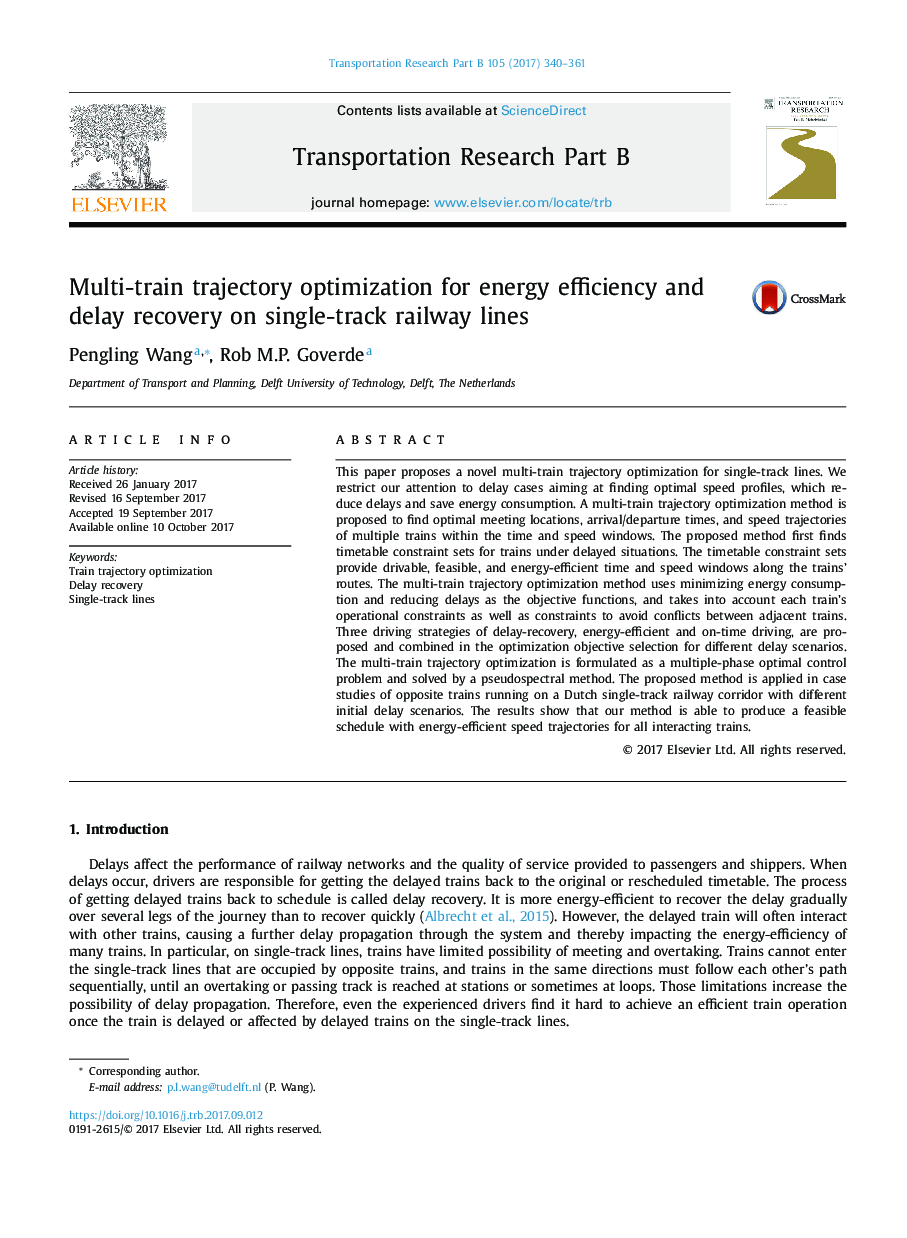| Article ID | Journal | Published Year | Pages | File Type |
|---|---|---|---|---|
| 5126924 | Transportation Research Part B: Methodological | 2017 | 22 Pages |
â¢This paper considers trajectory optimization of delayed trains on single-track lines.â¢A multi-train trajectory optimization method is proposed.â¢Meeting stations, arrival/departure times and speed profiles are optimized jointly.â¢Selecting proper driving strategies leads to reduced energy consumption and delays.â¢The performance is demonstrated in a case study of a Dutch single-track line.
This paper proposes a novel multi-train trajectory optimization for single-track lines. We restrict our attention to delay cases aiming at finding optimal speed profiles, which reduce delays and save energy consumption. A multi-train trajectory optimization method is proposed to find optimal meeting locations, arrival/departure times, and speed trajectories of multiple trains within the time and speed windows. The proposed method first finds timetable constraint sets for trains under delayed situations. The timetable constraint sets provide drivable, feasible, and energy-efficient time and speed windows along the trains' routes. The multi-train trajectory optimization method uses minimizing energy consumption and reducing delays as the objective functions, and takes into account each train's operational constraints as well as constraints to avoid conflicts between adjacent trains. Three driving strategies of delay-recovery, energy-efficient and on-time driving, are proposed and combined in the optimization objective selection for different delay scenarios. The multi-train trajectory optimization is formulated as a multiple-phase optimal control problem and solved by a pseudospectral method. The proposed method is applied in case studies of opposite trains running on a Dutch single-track railway corridor with different initial delay scenarios. The results show that our method is able to produce a feasible schedule with energy-efficient speed trajectories for all interacting trains.
